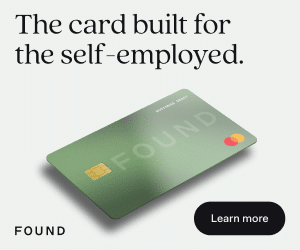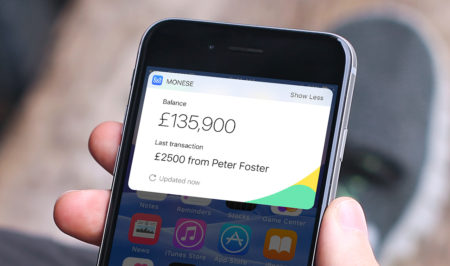Being a freelancer can be a liberating experience. It gives you the potential to work anywhere in the world, from your couch or a park bench.
However, if you don’t want any trouble from the IRS, you’ll need to start your new business right. Read on to learn more about how to legally start a freelance business.
Realize that freelancing means freedom
Did you know that you can travel the world while being a freelancer? You probably know that businesses need to have a physical address, but you can still roam around.

Get Weekly Freelance Gigs via Email
Enter your freelancing address and we'll send you a FREE curated list of freelance jobs in your top category every week.
By the end of this article, you’ll have a good idea of what you can and can’t do when building your new freelancing career.
1. Establish what you want to do
One of the first things you need to think about is what kind of business you’ll be doing. The category “freelancing” covers a wide range of different freelance jobs.
Legally starting a freelance business can have a lot of variety. For example, you can work as an independent contractor in construction, security, or as a consultant. You might be going to school and want to be paid part-time as a freelance writer. The variations in your freelance career are endless.
Once you know what type of work you’ll be doing, you can decide how to make your business structure. That determines what kind of business license and business entity you’ll need.
Although a freelance business can be uniquely liberating, many business owners ultimately decide to make it a full-time job. Although it can be very different from a “normal job,” freelance work doesn’t have to be exceptionally different from a regular small business. The main variation is that you are your own boss.
2. Ask yourself: “Am I a freelancer?”
It might not be so easy at first to answer this simple question. So let’s look at what freelancing is not.
If you’re paid an hourly wage by performing pre-defined duties with a contract, you’re might be an employee, not a freelancer. Even if the contract doesn’t legally say “employment contract,” state law may consider it to be “employment.”
When you are a freelancer and have figured out how to legally start a freelance business, you usually are paid on small contracts for particular project work, directly between you and the client, mostly referred to as a subcontractor.
A freelancer is an independent contractor, usually with just one person in the freelancing company. You may use separate contracting or subcontracting agreements to negotiate payment for your work.

Freelancers and employees can work side-by-side in your company, but a freelancer isn’t just an independent contractor. Independent contractors sometimes have similar duties to employees.
Because of the narrow distinction and overlap, there are many cases of independent contractors suing in court, winning re-classification as employees, and receiving employee benefits like health care coverage. A freelancer is apart from the client company, doing highly defined work for a short, well-defined term.
Some freelance jobs are graphic designers, bloggers, writers, lawyers, marketers, freelance web design experts, packaging design experts, and consultants. If you work for a company that splits the tasks and negotiates with clients for you, you can still do these jobs as an employee.
If you talk directly to clients, you can get paid directly with job boards like Upwork and advertise your skills as a web designer, social media marketer, or another type of expertise; you are quite likely a freelancer.
You should look into web payment options like Lili, PayPal and Stripe or more a better suite of tools like FreshBooks or Fiverr Workspace. For freelancers, you can get paid right through the job board. Some of them even support direct deposit. Services like Adobe Acrobat Small Business have payment acceptance built right into the e-invoice software.
3. Ask yourself if you need a freelance business entity
A legal entity is a person or business that can own property. As a person, you probably have a bank account, perhaps a car, laptop, or investments.
A freelance business entity is technically separate from you. It’s another standard unit with associated ownership, debt, rights, and responsibilities.
When you own a business entity, it can be a sole proprietorship, limited liability company (LLC), or corporation. The difference between these business types mostly comes down to size, but there are also some significant differences in liability. Liability refers to the debts and ownership of the company.
Let’s say you take out a loan for a computer, but you want to do it as the company and claim the purchase as an expense to reduce business tax payments.
You’ll need to have a specific company type for that. Company types like sole proprietorships don’t legally separate the sole proprietor (that’s you) from the company. Your assets then are shared, as well as your debts.
If you want to keep your personal assets separate from the business, you probably will need to go from sole proprietor to a limited liability company. The part about “limited liability” means that you as a person aren’t responsible for the company’s loans or owned assets.
LLCs have a separate business bank account, apart from your personal bank account. That means if the company is closed or declares bankruptcy, your personal assets are safer from seizure or sale to cover the company’s liabilities.

You might be reading this, trying to understand if your side hustle qualifies as a freelance business. The fundamental answer is that it probably does. Is getting paid for your work legal without a business license?
By US law, being paid over $400 over an entire year without a business license is not legal. So the most common understanding then is that no, it’s not legal. If you’re making more than that, read on to discover how to legally start a freelance business.
Being paid over $400 over an entire year without a business license is not legal in the US.
So what to do then? Let’s say you’ve been working as a freelancer already, and you want to get everything on board. It’s not complicated. Transitioning your startup to a legal company is primarily about paying for a license.
Once that’s done, you’ll need to pay taxes to keep your license.
4. Determine where to register your new business
The first thing to think about when you want to start a new business is where to get your license. It’s the most critical factor in owning your own business and determining how to legally start a freelance business. You can use services like BetterLegal or LawGood to quickly get you set up as a freelance business.
Most people starting a small business don’t need to overthink where the company exists. If you do business from a permanent place, it’s easy. The location is at the physical address where you work.
If your business has potential clients from anywhere in the world, like many freelancers, it’s less clear where your business takes place.
The honest answer for you might be: your business happens online, everywhere and nowhere, and wherever you happen to be. You still need to pick a place regardless of where your entrepreneurship spirit takes you.
So the next step is to look at your passport, your drivers’ license, or your ID card. Where is your address? Do you have permanent residency in a particular place? You can think of this place as “Plan A.”
Where do you live? If you live somewhere else, you can consider that place as “Plan B.”
So, the typical decision process for obtaining a new business license is to evaluate the Plan A location and Plan B location and compare the pros and cons of both. You’ll need to look at a lot of different factors, which we’ll discuss next.
But first, consider a “Plan C” option. You can get an e-residency and a business license in a 3rd-party location. Many countries offer so-called “digital nomad” visas, including all of the components you need for freelancing, all in one package.

Although we can’t speak for all business licenses, there are ordinarily several categories of licenses and components. We talked about LLC, Corporations, and Sole Proprietorships.
5. Choose what business type to create
First, to eliminate some confusion, Sole Proprietorships are often called “Individual Proprietorships” or “IPs,” not to be confused with IP (Intellectual Property). A sole proprietorship is like an LLC, without the Limited Liability part (you are personally liable for the company’s assets and debts).
You typically do business as (DBA) yourself or your full name in a sole proprietorship. In many cities and municipalities, your name as the DBA for an IP/SP is mandatory.
Limited Liability Companies also are called LLPs or “Limited Liability Partnerships” in some jurisdictions. For most purposes, the naming conventions don’t matter much. We will focus on the LLC, but just know that the LLC and LLP are typically interchangeable terms.
When you get a business license, you need to obtain several records. It’s not just one document. You’ll need first the IRS’s EIN (Employer Identification Number) registration for your new business to be able to pay income tax.
The EIN Registration is like a federal business license, but it’s not enough for your business to work legally. To get an EIN, the director or principal officer of your company will need a social security number, so at least you’ll need to hold a green card and everything you need to file a tax return.
A license in the US is also often called a “Registration,” “Certificate,” “Operating Permit,” “Commercial Permit,” or “Work Authorization.” There are many other permutations, so you’ll need to research the particular jurisdiction.
6. Send the applications for your business license.
Once you have the federal EIN, you will need a State Business License. The state license is where you define your LLC’s name, do business as (DBA), address, and pay the registration fees. In the U.S., you can now apply for all registrations at once, using the IRS portal.
When choosing your company name, you can have a different business name than your DBA because you might have a shorter, more brand-able name that you use.
In most business registrations, you need to show the DBA and the full business name. State registration programs usually will perform a business name search for you to ensure there isn’t a duplicate company name in your state already.
The state registration programs also typically have resources available to learn how to legally start a freelance business in your locality.
When you are filing your applications, you’ll need to choose one of several options: LLC, LLP, Sole Proprietorship, V-Corp, S-Corp, and more. You need to research more about what business type works best for your locality.
After the state and federal registrations are out of the way, you may also need to register locally at the city level. Larger towns usually have more strict requirements, additional taxes, and higher registration fees.
Smaller cities typically have better tax benefits and lower fees. Some cities, states, and even country governments offer extensive services for new companies, so search around and discover what offers might be out there before deciding on a place to host your freelancing business.
7. Get your first client and beyond
Legally, your new company can contract with basically anyone in the world as a freelancer (your company is the contract holder, not your ‘person’). As a US citizen, there are some limitations for employment (which include freelancing in this context).
For example, you can’t work for a foreign military or work for some particular political office roles. If your work requires an NDA (Non-Disclosure Agreement), security clearance, or other restrictive agreements, make sure it’s legal in your country.
An easy way to get your first client is to consult job boards. You can get certified on Coursera, Udemy, or several other online schools, then work online and turn your skills into cash. The best clients you’ll ever get will be referrals from other clients. The positive testimonials you receive from good work done is the most valuable factor for freelancers.
Once you set up your company, do as much as you can to simplify your operations. Use apps like Moxie, Bonsai, FreshBooks, or HoneyBook to manage your finances, documents, and signing contracts with clients. The usage of crucial automation and software tools is a decisive part of how to legally start a freelance business.
You should search online and get all kinds of contract templates, ready to be customized. Many typical business tasks can be automated, streamlined, and ultimately done with an app.
8. Keep your business license valid by paying taxes anywhere in the world
Once your business is operational, paying taxes is generally pretty straightforward, regardless of where you are in the world. Remember to adjust your freelancing pricing upward.
When you’re an employee, taxes are removed automatically from your salary, so you might not think about it. When you are operating as a separate business, you will need to pay your taxes quarterly and annually.
Although your projects and tasks as a freelancer may be decidedly short-term oriented, you’ll need to do some planning to pay taxes. Calculate how much money you expect to make, and set aside enough to pay taxes later on. Self-employment tax can be a steep price to pay, especially when you haven’t set aside sufficient savings from each contract.
Similar to your personal finances, you need to manage your freelance company’s finances with care. Set aside enough money from each client’s job, and paying your taxes is a relatively simple process. We’re not going to explain everything in-depth here, but we’ll mention a couple of simple things to remember.
Expenses: don’t pay with your personal finances. Use the company bank account, and get invoiced to the company. It may take longer, but you may deduct these expenses from your LLC’s tax liability. Your company may owe very little in taxes if you have enough business expenses. That’s why expenses are so valuable.
It’s imperative to understand what is and what is not a company expense. If the IRS finds you “expensing” personal payments under the company account, your company’s limited liability status may be breached, called breaching the “corporate veil.”
If anyone brings a lawsuit against you, the first thing the opposing lawyer will try to do is prove that your company is invalid and that you are personally responsible for all company damages or debts. You don’t want that.
Keep your company expenses and business expenses explicitly, clearly separate.
Use apps to pay and keep on top of your finances. Even the IRS supports many electronic payment options and direct deposit. That means you can transfer money anywhere in the world, pay taxes legally online with tax-management apps.
9. Double taxation: Worry about it, just not too much
It’s worth mentioning double-taxation briefly. If you are residing in a different country than your business is registered, you may have a separate bank account personally.
You need to pay personal income tax when paying yourself from your LLC to your personal account. When you live in a different country, you’ll need to register with your EIN or SSN for the account (depending on if it’s a business or personal bank account).
This setup allows the IRS to see what income taxes you have paid to the IRS and the local country. In countries with anti-double-taxation treaties, like most countries worldwide, you need to pay taxes only once.
When you file to the IRS, you’ll need to prove that you paid income taxes in a foreign country.
If the treaty applies to this country, you will only need to pay the remainder of taxes to the IRS. If the IRS’s tax rate is lower than the foreign country, then you may not need to pay taxes to the IRS at all-but you still need to pay income taxes to the country you are living in.
Wrapping it up…
Now, hopefully, you have a good grip on how to legally start a freelance business. You’ll need to do good work, get that work associated with your brand or company name, and wait for referrals to bring you profitable deals.
A freelancing business can be your full-time job, but it’s a difficult road between starting and having a healthy pipeline of work.
The good news is, you are now your own boss, you can do what you love, and you can do it from anywhere in the world. Welcome to the growing community of global freelancers. You’re off to a great start!
Keep the conversation going...
Over 10,000 of us are having daily conversations over in our free Facebook group and we'd love to see you there. Join us!



